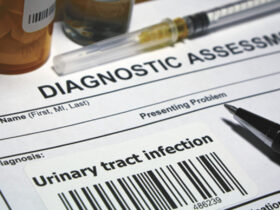Exploring Low-Dose Naltrexone and Methylene Blue as Adjunct Therapies
By Jerry and Lisa Meloche, Pharm.D., Owners, Compounding Pharmacists
Alzheimer’s disease (AD), the most common form of dementia, is a progressive neurodegenerative condition affecting more than 6.9million Americans aged 65 and older as of 2024. With no cure currently available, efforts are focused on slowing disease progression, managing symptoms, and improving quality of life. Emerging research highlights the potential of alternative and adjunctive therapies, including low-dose naltrexone (LDN) and methylene blue (MB), as supportive options in comprehensive treatment plans.
Understanding Alzheimer’s Disease
AD is characterized by the accumulation of amyloid-beta plaques and tau protein tangles in the brain, resulting in neuroinflammation, synaptic dysfunction, and neuronal death. Clinically, it presents as memory loss, confusion, impaired judgment, and eventual loss of independence.
While FDA-approved medications such as donepezil, galantamine, memantine, and, more recently, lecanemab (a monoclonal antibody targeting amyloid-beta) are prescribed to manage symptoms or slow progression, many patients and providers seek adjunctive treatments that may target underlying mechanisms like inflammation, oxidative stress, and mitochondrial dysfunction.
The Role of Neuroinflammation in Alzheimer’s
Chronic inflammation is a core pathological feature of Alzheimer’s disease. Activated microglia (the brain’s immune cells) release pro-inflammatory cytokines that can damage healthy neurons and disrupt synaptic communication.
This has led to interest in immune-modulating therapies, especially those that can cross the blood-brain barrier. Low-dose naltrexone (LDN) and methylene blue (MB) are two such agents being investigated for their neuroprotective and anti-inflammatory properties.
Low-Dose Naltrexone (LDN): Immune Modulation and Neuroinflammation
Naltrexone, originally approved by the FDA in 1984 to treat opioid and alcohol dependence at doses of 50–100 mg, has shown different effects at much lower doses, typically between 0.5 mg and 4.5 mg daily. At this low dosage, LDN acts as a temporary opioid receptor antagonist, triggering a rebound increase in the body’s natural endorphins, including opioid growth factor (OGF). These peptides not only regulate pain and mood but also have anti-inflammatory and immune-balancing properties.
Several studies and case reports have suggested that LDN may:
• Reduce microglial activation, a key driver of neuroinflammation in AD
• Modulate the release of pro-inflammatory cytokines such as IL-6 and TNF-α
• Improve cognitive clarity, mood, and sleep in neurodegenerative conditions
A 2022 review in Frontiers in Aging Neuroscience proposed that LDN may hold promise as an adjunctive therapy for Alzheimer’s and other forms of cognitive decline, particularly due to its low side effect profile and neuroimmune benefits. However, more clinical trials are needed to validate efficacy in this population.
Methylene Blue: Mitochondrial Support and Cognitive Function
Methylene blue (MB) is a synthetic compound first used over a century ago as a dye and antimalarial agent. Today, its utility in cognitive health is being explored due to its multifaceted mechanisms of action in the central nervous system.
At low doses (0.5–4 mg/kg), methylene blue:
• Acts as a mitochondrial electron carrier, enhancing cellular respiration and ATP production
• Functions as a neuroprotective antioxidant, reducing oxidative stress
• Inhibits tau aggregation, a hallmark of Alzheimer’s pathology
• Enhances memory consolidation and cognitive function in animal models
A 2016 study published in JAMA Neurology found that MB improved mitochondrial function and reduced cognitive decline in patients with mild AD. Another trial (PROTECT) is evaluating TRx0237, a proprietary formulation of methylene blue, in early Alzheimer’s with promising results in preserving memory.
Importantly, MB crosses the blood-brain barrier, making it a strong candidate for central nervous system conditions. However, dosing must be carefully managed to avoid potential side effects, including serotonin syndrome when combined with certain antidepressants.
A Compounded Approach to Cognitive Support
Both LDN and MB are available through compounding pharmacies, such as Creative Scripts, which can customize dosage and formulation for individual patients under the guidance of a prescriber. This personalized approach is especially valuable in neurodegenerative diseases where patient response can vary.
When used as part of a broader treatment plan including prescription medications, diet, physical activity, cognitive therapy, and caregiver support, LDN and MB may offer an adjunctive role in enhancing quality of life and potentially slowing disease progression.
At Creative Scripts Compounding Pharmacy, we collaborate closely with healthcare providers to develop evidence-informed, customized therapies that address the evolving needs of patients with Alzheimer’s and other neurodegenerative conditions.
Consultation and Next Steps
While promising, LDN and methylene blue are not FDA-approved for the treatment of Alzheimer’s disease, and their use should be considered off-label and under medical supervision. Patients and caregivers are encouraged to discuss these options with their neurologist or integrative healthcare provider.
Sources:
• Alzheimer’s Association 2024 Facts and Figures Report
• Frontiers in Aging Neuroscience, 2022
• JAMA Neurology, 2016
• ClinicalTrials.gov: TRx0237 Alzheimer’s Studies
• National Institute on Aging
Creative Scripts Compounding Pharmacy custom builds medication, one patient at a time. We use the highest quality pharmaceutical-grade ingredients, state-of-the-art bases, equipment, and technology. Ongoing training on the latest techniques, advances in therapy, and regulations enables our pharmacists and technicians to provide the safest, most effective medications for you and your pets. In addition to compounded medications, we offer pharmaceutical-grade nutritional supplements, health advice, and hormone consultations. Creative Scripts specializes in veterinary compounding, dermatology, bio-identical hormone replacement therapy (BHRT), pain management, and more. Pharmacists Jerry and Lisa Meloche have served Naples and surrounding communities since 2005.
Come in to see us or call AND MENTION THIS AD for a one-time $15 off a new or transferred prescription!
239-261-0050
600 Goodlette Road North #108
Naples, FL 34102
www.creativescripts.net





